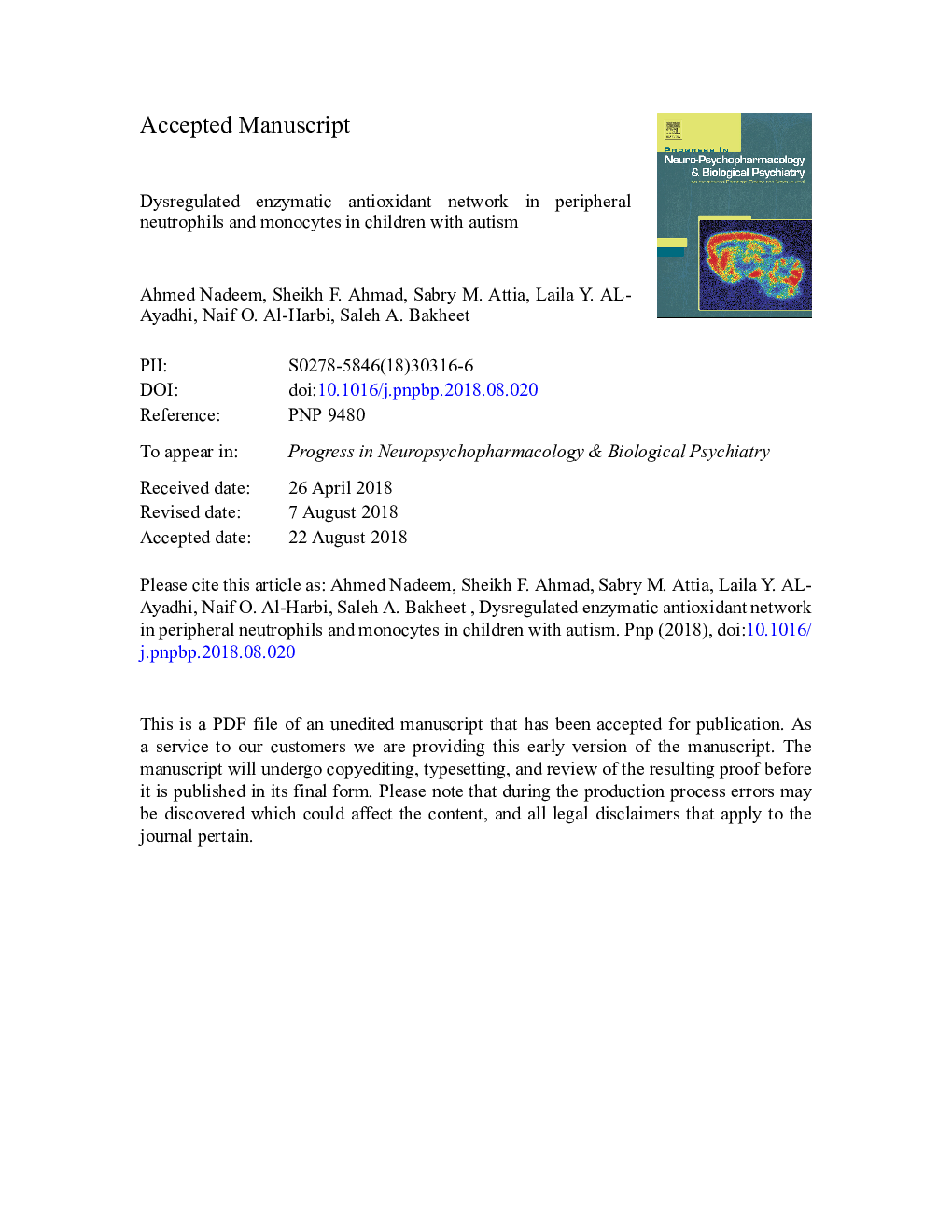| Article ID | Journal | Published Year | Pages | File Type |
|---|---|---|---|---|
| 9954957 | Progress in Neuro-Psychopharmacology and Biological Psychiatry | 2019 | 31 Pages |
Abstract
Autism spectrum disorder (ASD) is a neurodevelopmental disorder where immune cells play an important role. Oxidants and pro-inflammatory cytokines generated by innate immune cells have been implicated in the pathogenesis of ASD. Many previous reports have shown the role of various enzymatic antioxidants in the plasma/red blood cells of ASD subjects, however no study so far has evaluated them in peripheral immune cells of innate origin (neutrophils and monocytes) in ASD patients and typically developing control (TDC) children. With this background, our study explored the expression and activities of major enzymatic antioxidants such as superoxide dismutase (SOD), glutathione peroxidase (GPx) and glutathione reductase (GR) in peripheral neutrophils and monocytes of TDC/ASD subjects. Our data show that expression and activity of SOD is increased in ASD subjects as compared to TDC children in neutrophils and monocytes. On the other hand, GPx/GR activity is either reduced/unaltered in neutrophils and monocytes of ASD subjects as compared to TDC children. Increased SOD expression is associated with upregulated expression of nitrotyrosine (a marker of oxidant damage) in both innate immune cells of ASD subjects. Our study suggests that despite adaptive antioxidant response, there is an increased oxidative burden in peripheral neutrophils and monocytes of ASD subjects. This suggests that dysregulated enzymatic antioxidant network in peripheral innate immune cells could play a significant role in the pathogenesis of autism.
Keywords
Related Topics
Life Sciences
Neuroscience
Biological Psychiatry
Authors
Ahmed Nadeem, Sheikh F. Ahmad, Sabry M. Attia, Laila Y. AL-Ayadhi, Naif O. Al-Harbi, Saleh A. Bakheet,
